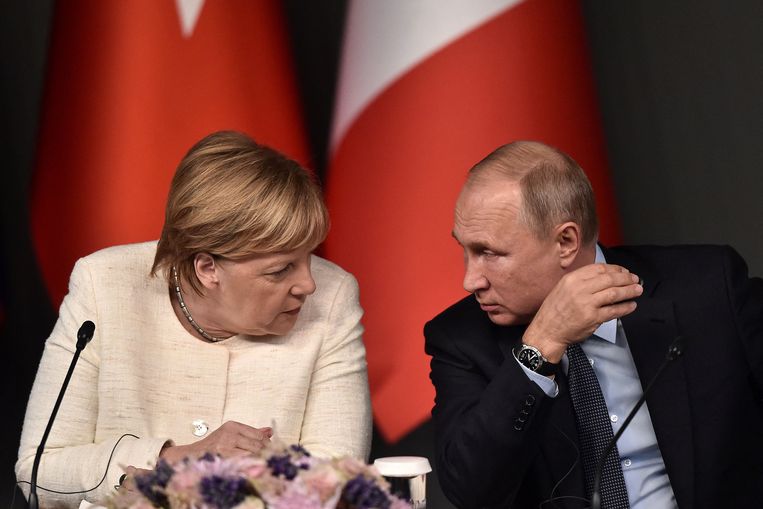After heavy criticism, former German Chancellor Angela Merkel spoke on Monday for the first time in a month about the war in Ukraine. Through a spokesperson, she defended her decision, in 2008, to oppose Ukraine’s NATO membership. At the same time, Merkel expressed her support for all German and international measures against the “Russian barbaric war”.
at Sunday evening video message Ukrainian President Zelensky accused Merkel and former French President Nicolas Sarkozy of joint responsibility for the… The massacre committed by Russian soldiers against Ukrainian civilians In Botja, near Kyiv.
“I invite Mrs. Merkel and Mr. Sarkozy to Botia to find out what the policy of concessions has done for Russia in fourteen years.” Zelensky said“And to see with your own eyes the tormented Ukrainian men and women. We hold the Russian army responsible, not the West, but we are entitled to complain about the hesitation.”
Referring to “fourteen years,” Zelensky is probably referring to the 2008 NATO summit in Bucharest. After years of preparation, Albania and Croatia were invited to membership in NATO. The French and German resistance defeated attempts by Ukraine and Georgia to run for membership. “It makes no sense to provoke Russia,” then German Foreign Minister Frank-Walter Steinmeier told German media at the time. Ukraine and Georgia promised to join one day, but not now.
Crisis manager without vision
Today, Steinmeier is Germany’s president, and was re-elected in February for another five-year term. Former CDU chancellor Merkel has been criticized by critics for putting German economic interests at the fore on issues such as human rights and democracy promotion, and for behaving during her tenure as a crisis manager without an ideological vision. Enthusiasts of Merkel see this as an added advantage: Maintaining stability was her vision, according to their lecture.
While Merkel acted primarily for economic, political, and strategic considerations, Steinmeier was also ideologically in favor of close ties with Russia. Within his party, the Social Democratic Socialist Party of current chancellor Olaf Schulz, it has long been believed that peace in Europe benefits from close economic and political cooperation with Moscow. An overly harsh stance—such as severe economic sanctions or outspoken, violent criticism of Russia’s treatment of members of the opposition—backfires in this view. Only after Russia attacked Ukraine in March did the SPD transform and the German government decided to send weapons to Ukraine.
Steinmeier was, among other things, a big advocate of Nordstream 2, the controversial Russian-German gas pipeline. In recent years, Germany has become increasingly dependent on (cheap) Russian gas, despite warnings from the United States and European allies. The billions of German euros that poured into Moscow in exchange for that gas helped finance Russia’s attack on Ukraine.
“Obviously sticking with Nordstream 2 was a mistake,” Steinmeier now says. We have stuck to the bridges that Russia no longer believes in and that our partners have warned us against. I thought that Putin would not accept the complete economic, political and moral collapse of his country for the sake of his imperial delusions. But I was wrong like the others.
Unlimited weapons for Ukraine
Germany is now down an increasingly difficult path, although it continues to resist the toughest economic sanctions, such as the embargo on Russian gas. Also on Monday, Robert Habeck, Minister of Economic Affairs and Vice-Chancellor on behalf of the ruling Green Party, called for an unlimited arms supply to Ukraine. Germany has supplied thousands of anti-tank weapons and portable anti-aircraft missiles since the beginning of the war. Habek wants more. Germany also declared 40 Russian diplomats suspected of spying as “persona non grata” on Monday. They must leave the country within five days.







